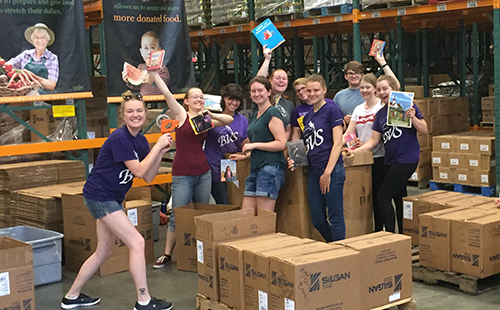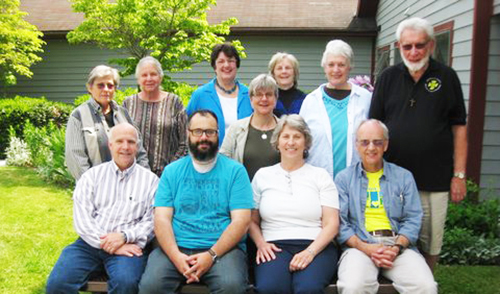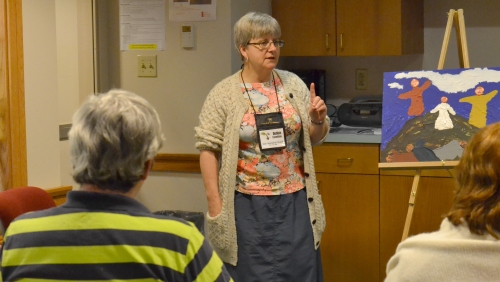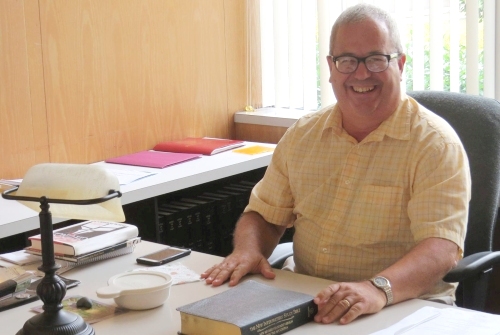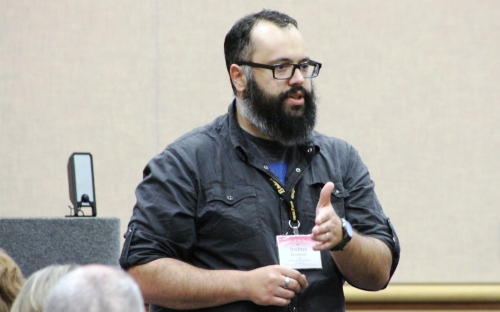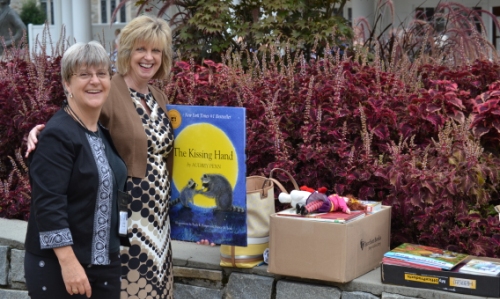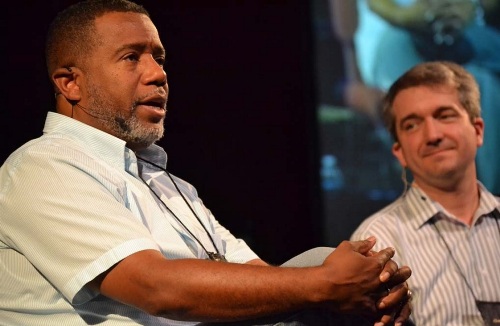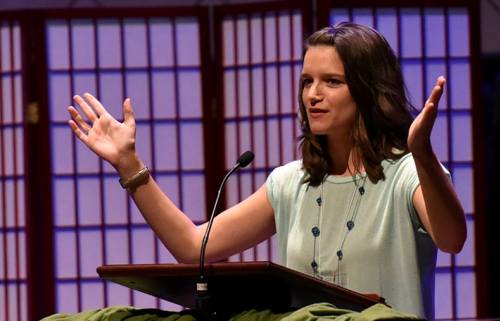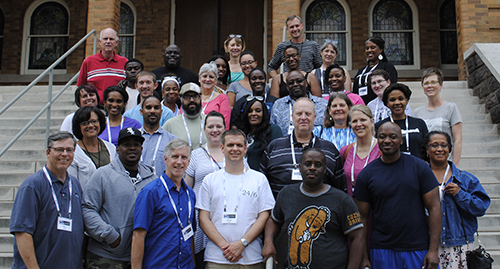
Joshua Brockway and his Sankofa partner,
Drew Hart, stand with their group in July 2017.
By Joshua Brockway, director of Spiritual Life and Discipleship
Last summer I had the privilege of participating in the Sankofa Journey hosted by the Evangelical Covenant Church. Sankofa is an intentional effort to address racial injustice both within the church and in society. We traveled in mixed-race pairs on a bus to historically significant sites of the Civil Rights Movement—Birmingham, Montgomery, Selma, Jackson, and Memphis.
Sankofa is not a tourist trip. Rather, it is an intense learning experience built around conversations between partners and among the community that forms on the bus. The Evangelical Covenant Church describes Sankofa as a “journey towards racial righteousness.” Given the climate of race relations in the country today, I found that choice of words striking. We often think the counter to injustice is justice. So to use the theologically rich word of “righteousness” helped me to see racism in a new light.
In the New Testament, the Greek word for “justice” can also mean “righteous.” The meaning relates to relationships with one another and with God as well. In other words, to be just to one another is also to be reconciled with God, and to be reconciled with God is to be right with one another. Unfortunately, English is not able to bring those two important meanings together in one word.
Congregational Life Ministries staff are planning a racial righteousness workshop before Annual Conference this year to build on the rich meaning of biblical righteousness and justice. The city of Cincinnati played a key role in the Underground Railroad and has historic cultural resources related to our country’s story of racism. We have chosen to call this workshop “Diakaios,” after the New Testament Greek word for “justice” and “righteousness.”
We pray that this small effort will model prayerful conversations about race and white supremacy among the Brethren. And we are looking forward to the spiritual fruit it will bear in our church.
Your gifts to the Church of the Brethren support this and other initiatives that train Brethren disciples to continue the work of Jesus. The February issue of Messenger has articles by me and three others who participated in the Sankofa Journey last year. Your contributions supported the racial righteousness training of these individuals and prepared them to share in leadership at the workshop in Cincinnati. Please pray with us for a Spirit-led transformation of the church that works toward the vision of Revelation 7:9: a people from all nations, tribes, and languages gathering to worship the Lamb of God.
Learn about this summer’s “Dikaios and Discipleship” workshop at www.brethren.org/dikaios. Support the work of Congregational Life Ministries at www.brethren.org/give .


